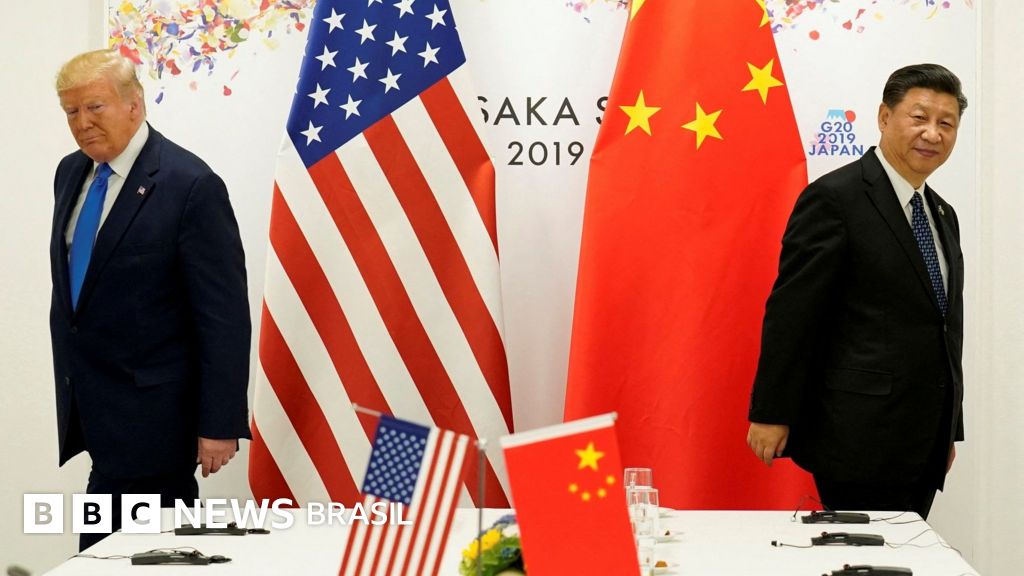
The trade war between China and the United States, ignited by former President Donald Trump’s “America First” policies, has left a trail of destruction across industries, livelihoods, and families. This article delves into the human cost of this conflict, examining how ordinary people in both nations have been caught in the crossfire.
When tariffs were imposed on Chinese goods entering the U.S., American companies scrambled to find cheaper suppliers elsewhere. But for many workers in Midwestern factories, this meant losing their jobs. In cities like Dayton, Ohio, where General Motors once employed thousands, the closure of plants sent shockwaves through communities already struggling with automation. “I worked there for 15 years,” said Mike Carter, a former factory worker who lost his job when GM moved production to Mexico. “Now I’m just trying to figure out how to pay my bills.”
In China, Trump’s trade war hit agricultural exports hard. Farmers in regions like Heilongjiang Province faced plummeting soybean prices as U.S. tariffs made Chinese products less competitive on the global market. “We used to export most of our crop,” said Li Wei, a farmer whose family has worked the land for generations. “Now we’re lucky if we can sell half of it.” The financial strain forced many to take second jobs or rely on government subsidies.
The human cost extends beyond economics. In both countries, the trade war has deepened divisions and fueled nationalism. In the U.S., anti-China rhetoric has sometimes translated into xenophobia against Asian communities. Meanwhile, in China, state media has portrayed the conflict as a David vs. Goliath battle, with ordinary citizens rallying behind their government.
Trump’s legacy is one of brinkmanship and division. His approach to trade policy, while intended to bolster the U.S. economy, left millions of workers on both sides of the Pacific struggling to make ends meet. Yet, amidst the chaos, there are glimmers of hope. Grassroots initiatives in both countries aim to bridge divides, fostering dialogue between farmers, factory workers, and policymakers.
The trade war’s human cost reminds us that economic policies don’t just affect numbers on a balance sheet—they shape lives. As global leaders navigate future trade disputes, they must prioritize the people caught in the crossfire, not just the bottom line.
About the Author:
Bella Kim is Reporter at our publication. Writer and researcher specializing in Asian arts and migration stories. Bella’s work explores how young Asians are shaping global culture through their experiences.
 Journalist and photographer with a focus on Middle Eastern youth and their cultural contributions. Aisha’s work bridges traditional and modern storytelling in the region.
Journalist and photographer with a focus on Middle Eastern youth and their cultural contributions. Aisha’s work bridges traditional and modern storytelling in the region. Writer and researcher specializing in Asian arts and migration stories. Bella’s work explores how young Asians are shaping global culture through their experiences.
Writer and researcher specializing in Asian arts and migration stories. Bella’s work explores how young Asians are shaping global culture through their experiences. Reporter with a background in investigative journalism, focusing on human rights and social justice. Luis has worked across Latin America and Europe, uncovering stories that resonate globally.
Reporter with a background in investigative journalism, focusing on human rights and social justice. Luis has worked across Latin America and Europe, uncovering stories that resonate globally. Sarah is a seasoned journalist with over 15 years of experience in global news and media. She has led teams in some of the world’s most challenging reporting environments, bringing a vision for storytelling that connects cultures and empowers voices.
Sarah is a seasoned journalist with over 15 years of experience in global news and media. She has led teams in some of the world’s most challenging reporting environments, bringing a vision for storytelling that connects cultures and empowers voices.